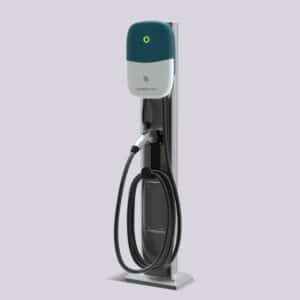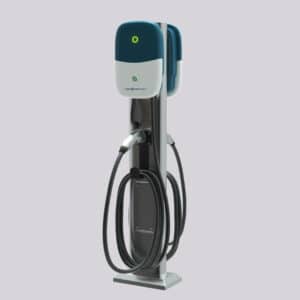Electric vehicles (EVs) have gained popularity due to their environmental benefits and cost savings on fuel. One common question among potential EV owners is, “How expensive is EV maintenance?” Let’s explore the topic in detail.
Overview of EV Maintenance
EVs generally have fewer moving parts compared to internal combustion engine (ICE) vehicles, resulting in simplified maintenance requirements. However, there are still some aspects to consider.
Battery Maintenance
Knowing when it’s time to change the battery pack in an electric car and determining the cost can vary depending on several factors. Here’s some information to consider:
- Battery Degradation and Capacity Loss: Over time, the capacity of an electric car’s battery pack naturally degrades. This means the battery’s ability to hold a charge gradually diminishes. Battery degradation is a normal occurrence and can vary based on factors such as battery chemistry, usage patterns, temperature, and charging habits. Manufacturers often provide warranty coverage for a specific period or mileage to ensure performance within acceptable limits.
- Monitoring Battery Health: Electric cars usually have built-in systems that monitor battery health and provide estimated range based on the current state of charge. The vehicle’s dashboard or infotainment system may display information about battery capacity, state of health (SOH), and estimated range. Regularly checking these indicators can give you an idea of how your battery is performing over time.
- Battery Diagnostic Tools: Professional diagnostic tools, such as those used by authorized service centers or dealerships, can provide more accurate assessments of battery health. These tools can analyze battery performance, capacity, and provide detailed information about any degradation. If you have concerns about your battery, consulting a qualified technician can provide a more accurate evaluation.
- Battery Replacement Costs: The cost of replacing an electric car’s battery pack can vary significantly based on the make, model, battery size, and manufacturer. Battery prices have been decreasing over the years, but it’s essential to contact the vehicle manufacturer or authorized service centers to get precise pricing information for your specific electric car. It’s worth noting that battery replacement is often a rare occurrence, as most batteries are designed to last for many years and come with warranty coverage.
Brake System
EVs often feature regenerative braking, which helps recharge the battery while reducing wear on the brake pads. As a result, the brake pads on EVs tend to last longer compared to traditional vehicles. However, brake fluid flushes and periodic inspection of the braking system are still recommended for safety.
Tires and Suspension
Tire and suspension maintenance for EVs is similar to that of conventional vehicles. Regular tire rotations, wheel alignments, and suspension inspections are necessary to ensure optimal performance, safety, and comfort. Prices for these services can vary depending on the specific make and model of the EV.
Cost Comparison: EV vs. ICE Maintenance
When considering the expense of EV maintenance, it’s helpful to compare it with traditional ICE vehicles. While maintenance costs can vary based on individual circumstances, here are some key factors to consider:
Oil Changes and Fluids
One advantage of EVs is that they don’t require oil changes, transmission fluid replacements, or other typical fluid maintenance tasks associated with ICE vehicles. This saves EV owners from these routine expenses.
Air Filters and Spark Plugs
EVs also eliminate the need for periodic air filter replacements and spark plug changes. These maintenance tasks, which can add up in costs, are not applicable to electric vehicles.
Battery Replacement
The battery pack is often the most expensive component of an EV. However, most EV manufacturers provide warranties that cover the battery for a certain period, typically 8 to 10 years or more. The cost of battery replacement, if needed outside the warranty period, varies depending on the EV model and battery size. It’s essential to consult the manufacturer or authorized service centers for specific pricing details.
Other Considerations
While EV maintenance costs may be relatively lower compared to ICE vehicles, it’s essential to consider additional factors that can impact expenses:
Charging Equipment
The cost of a home charger for an electric car can vary depending on several factors, including the brand, charging capacity, additional features, and installation requirements. Here’s an overview of the potential costs:
- Level 1 Chargers: Level 1 chargers are typically included with the purchase of an electric car and can be plugged into a standard 120-volt household outlet. These chargers provide a slower charging rate compared to higher-powered chargers. Level 1 chargers are usually the most affordable option and may not require any additional installation costs if you have an accessible outlet near your parking space.
- Level 2 Chargers: Level 2 chargers offer faster charging speeds compared to Level 1 chargers. They require a dedicated 240-volt electrical circuit, similar to what is used for large appliances like electric dryers or electric stoves. The cost of a Level 2 charger can range from a few hundred dollars to over a thousand dollars, depending on the brand, features, and charging capacity.
- Installation Costs: Installation costs for a Level 2 charger can vary based on several factors, including the electrical infrastructure of your home, the distance from the electrical panel to the charging location, and any necessary electrical upgrades. The installation may involve hiring a licensed electrician to ensure compliance with local electrical codes and to handle the wiring and circuit installation. Installation costs can range from a few hundred dollars to several thousand dollars, depending on the complexity of the installation.
Manufacturer Recommendations
Following the manufacturer’s recommended maintenance schedule is crucial for the longevity and performance of your EV. Adhering to regular inspections, software updates, and service intervals will help identify potential issues early on and maintain the warranty coverage.
Service Center Costs
Service costs can vary between manufacturers and service centers. It’s advisable to research and compare service center prices, including labor rates, to ensure you’re comfortable with the potential expenses associated with your specific EV model.
Conclusion
EV maintenance costs are generally lower compared to ICE vehicles due to fewer moving parts and the elimination of certain maintenance tasks like oil changes and spark plug replacements. While EVs may require occasional maintenance for items such as tires, brakes, and battery health, the overall cost of ownership is often more affordable in the long run.
Remember, specific maintenance costs can vary depending on the make, model, and warranty coverage of your EV. Consult the manufacturer, authorized service centers, and local mechanics for accurate pricing information related to your electric vehicle.
Driving an EV offers not just environmental benefits but also potential savings on maintenance costs. With proper care and regular maintenance, you can enjoy the advantages of electric mobility while keeping your expenses in check.
Disclaimer: The prices mentioned in this article are for illustrative purposes only and may not reflect the actual costs of maintenance for specific electric vehicle models. It’s essential to consult the manufacturer, authorized service centers, or local mechanics for accurate pricing information.
Featured Products
-
 Add To Cart Select options
Add To Cart Select options
Nick Zamanov is a head of sales and business development at Cyber Switching. He is an expert in EV infrastructure space and he is an EV enthusiast since 2012, Since then Nick strongly believed that electric vehicles would eventually replace Internal Combustion Engine (ICE) cars.
-
Nick Zamanovhttps://cyberswitching.com/cyber-blog/
-
Nick Zamanovhttps://cyberswitching.com/cyber-blog/
-
Nick Zamanovhttps://cyberswitching.com/cyber-blog/
-
Nick Zamanovhttps://cyberswitching.com/cyber-blog/



